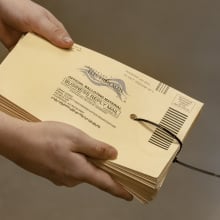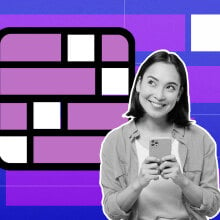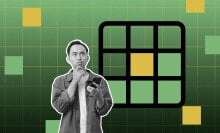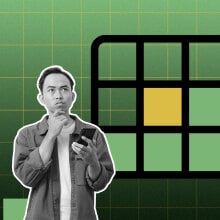With Election Day finally over, you might find yourself scrolling social media for hours on end — elated that Donald Trump won, or devastated that he defeated Kamala Harris.
Either way, you might instead consider a hard-earned break from the 2024 election altogether.
Whether you call the act of signing off on Wednesday a mental health day, social media detox, or simply touching grass, there is nothing you can gain from election-related hypervigilance, said Dr. Richard E. Cytowic, author of Your Stone Age Brain in the Screen Age: Coping with Digital Distraction and Sensory Overload.
"Whether you're obsessed about it or not, the vote count is going to be what it's going to be," Cytowic told Mashable prior to Election Day.
Still, many people have spent the past several weeks or months agitated and anxious about the election.
They're not just experiencing average stress, either. The American Psychological Association's recent poll of U.S. adults found nearly three-quarters of respondents worried that the election results could lead to violence, and more than half believe this election could be the end of democracy in America. With such incredibly high stakes in mind, it's no surprise that people have struggled with the uncertainty of knowing who will become president of the United States, and under what circumstances.
Yet, Cytowic said people also need an off-ramp from this anxiety, rather than letting it persist and fester. You may become fearful for other reasons now that the election results are clear, but at least you'll have a reprieve before new worries fully dominate your thoughts.
To help create this break, Cytowic, who is also a clinical professor of neurology at the George Washington University School of Medicine and Health Sciences, recommends the following strategies:
Accept that you don't have control over what happens. If you voted, try considering that the end of your election season journey, because you did what was within your power to help determine the outcome, Cytowic said.
You may want to start or continue activism and organizing, but much of that work involves direct action, not impulsively checking social media. Plus, you'll need to be rested and ready to engage; self-care is a political act and always has been.
There will be plenty of opportunities to get involved in politics in the coming months (remember: the Women's March didn't happen until the January after the November 2016 election).
Log off as much as possible. Cytowic said that people are overwhelmed because they're being bombarded by political advertising, social media content, and media coverage about the election, all of which can make them more anxious.
Now that the election is over, you may be scrolling for election postmortems, as well as guidance for how to cope with what the New York Times described on Wednesday as the "precipice of an authoritarian style of governance never before seen in [the United States'] 248-year history."
You can try pausing or silencing notifications, so your phone doesn't lure you back into a vicious cycle of checking for updates. If it's helpful, decide in advance to only check the news at certain times, such as after meals.
Tweet may have been deleted
Spend time with someone you care about. Social media and tech devices tend to pull us away from in-person interactions. But being with a friend or loved one with whom you enjoy spending time can be restorative, Cytowic said. So the days after the election could be a great time to grab coffee with a co-worker (you can choose to avoid politics), invite a friend to dinner, or speak to a family member (instead of texting them).
Do non-purposeful activities. Cytowic said that the human brain needs time to do nothing, because it's straining to be constantly stimulated. Bonus points if you're able to go outside to clear your mind.
The Dutch refer to such idling as Niksen, Cytowic said. The point is to shift your mental focus and use this time as an opportunity to reset the brain's proverbial circuit breakers. Cytowic particularly recommends looking at trees or the sky, or listening to birds. Even a quiet minute under a tree in a park can be beneficial.
Do a meditative activity. Quitting your device and social media for the day won't be easy if you don't plan alternative activities. Cytowic recommends hobbies that help you stay in the present moment or achieve a sense of flow. These can include meditation, cooking, playing cards, gardening, sports, and other engaging pursuits.
However you choose to give yourself a break after Election Day, just be sure to give yourself a meaningful opportunity to transition away from any stress or anxiety you've been living with for days, weeks, or months.
Cytowic said that if people can seize that chance, they'll be much happier than if they never stop their "relentless exposure" to screens, politics, and the turmoil they often create.
UPDATE: Nov. 6, 2024, 9:46 a.m. PST This story was written prior to Election Day. It was updated to reflect the election's results.
Topics Mental Health Social Good Politics













